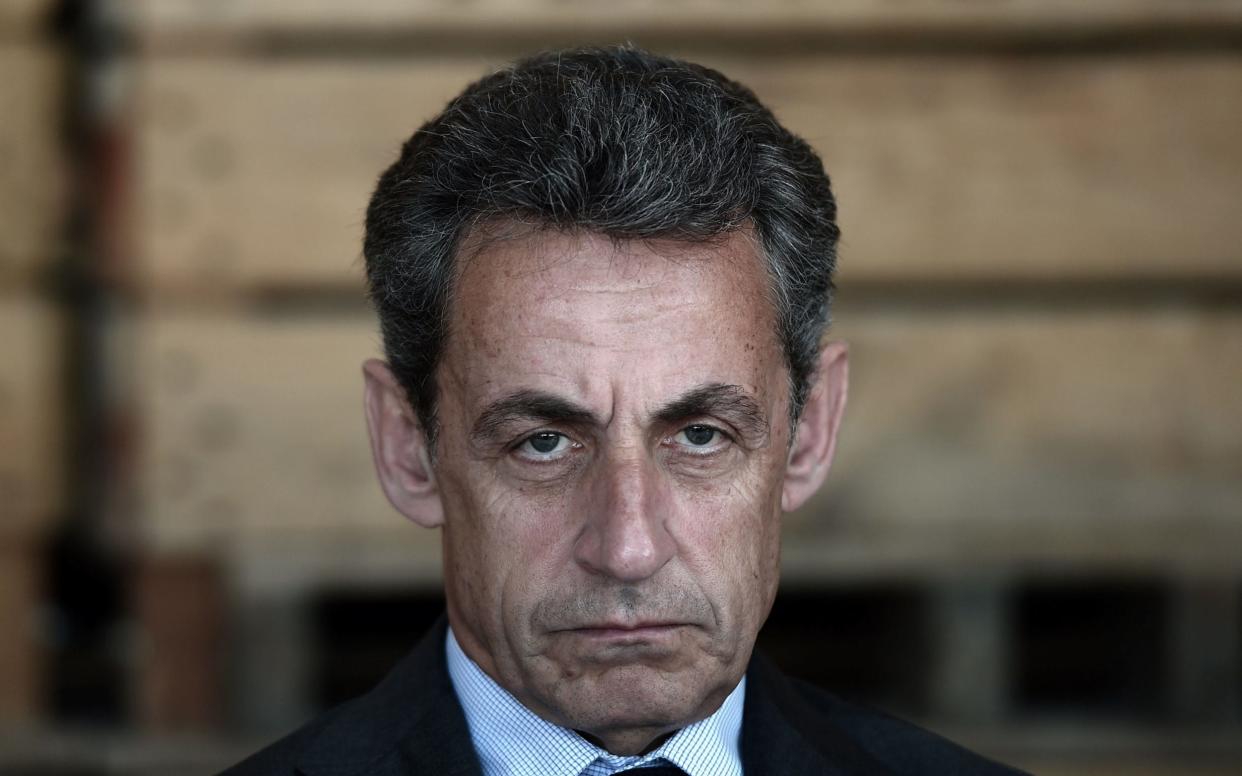Former French president Nicolas Sarkozy questioned in election financing probe

Nicolas Sarkozy, France’s former conservative president, was questioned by police on Tuesday over allegations that his 2007 election campaign received £42 million in illegal funding from the Libyan regime of Muammar Gaddafi.
Mr Sarkozy, 63, was taken into custody in the Paris suburb of Nanterre. Under French law, he may be held for up to 48 hours before being released or placed under formal investigation, a stage in the French legal process equivalent to being charged. He has repeatedly denied any wrongdoing.
Mr Sarkozy was held for questioning over separate corruption allegations in 2014, but it is the first time he has been quizzed by police over the Libyan accusations, although the investigation began in 2013.
A judicial source said police would only have summoned Mr Sarkozy if their investigation was close to completion.
Brice Hortefeux, a close ally of Mr Sarkozy who served as his interior minister, was also questioned but not taken into custody.

After Mr Sarkozy was elected in 2007, he spearheaded international military action against the Gadaffi regime in 2011 along with David Cameron and Barack Obama, which led to the dictator being toppled and killed.
Suspicions that Mr Sarkozy’s campaign had breached France’s strict political financing rules by accepting money from Gadaffi first emerged in a 2012 report by the investigative news website Mediapart.
Since then, Mr Sarkozy’s aides and several suspects said to have acted as intermediaries between France and Libya have come under close scrutiny.
One suspect, Alexandre Djouhri, a French-Algerian businessman, was arrested at Heathrow Airport in January and is being held while a request for extradition to France is considered. Mr Djouhri has also denied wrongdoing.
In 2015, Claude Guéant, Mr Sarkozy’s former chief of staff who also served as his interior minister, was charged in connection with the investigation. He denies accusations of money laundering and tax evasion.
Detectives have questioned about 10 people who worked on Mr Sarkozy’s campaign, according to a legal source. “All of them said cash had been handed out, but they didn’t know where it came from,” the source told the Daily Telegraph.
Ziad Takieddine, a French-Lebanese arms dealer who introduced Mr Sarkozy to Gaddafi, told Mediapart in 2016 that he had carried three suitcases stuffed with cash from Libya to Paris, personally handing over €5 million intended for Mr Sarkozy’s campaign to Mr Guéant in 2006 and 2007.
Mr Sarkozy served only one term as president. Since losing his re-election bid in 2012, he has faced multiple corruption investigations. He consistently denied wrongdoing. In some cases, charges were dropped but last year he was ordered to stand trial on charges of illegal overspending for his 2012 campaign.
In an unprecedented humiliation for a former French president, Mr Sarkozy spent 15 hours in police custody in July 2014 for questioning about allegations that he attempted to influence senior judges. He denied the accusations that he tried to obtain details from a judge about legal proceedings against him.
Mr Sarkozy retired from active politics after failing to win the presidential nomination of his centre -Right Republicans part last year, but he remains popular with Right-wing supporters, according to recent opinion polls.
The Republicans issued a statement saying they gave Mr Sarkozy their full support. Christian Jacob, the head of the party’s parliamentary group, suggested that the accusations were politically motivated, saying the “relentlessness” of the investigation was unjustified.
Mr Sarkozy is not the first former French president to face corruption charges. In 2011 Jacques Chirac was convicted of embezzling public funds to illegally finance the conservative party he led. However, the charges arose not from his presidency but from his earlier tenure as Paris mayor.
Mr Chirac was given a two-year suspended prison sentence. A legal source said the accusations against Mr Sarkozy were “vastly more serious”.

 Yahoo News
Yahoo News 
